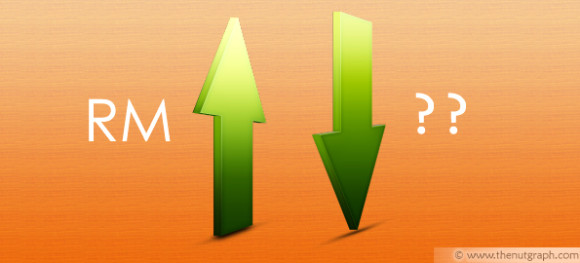
THE recent Selangor pay hike for state assemblypersons (ADUN), the menteri besar and executive council members has certainly received public attention. Datuk Seri Najib Razak has called Pakatan Rakyat (PR) representatives hypocrites, while even Opposition Leader Datuk Seri Anwar Ibrahim has expressed reservations. The Nut Graph speaks to political scientist Dr Wong Chin Huat on his views.
TNG: Some of the Selangor lawmakers will receive double and even triple their current salaries with the new pay hike. Were they underpaid before? Is there a need for this pay hike?
When discussing lawmakers’ remuneration, we should consider four aspects:-
![]() Their total pay;
Their total pay;
![]() The cost for discharging their duties or expected roles;
The cost for discharging their duties or expected roles;
![]() Their take-home income; and
Their take-home income; and
![]() The opportunity cost of not doing something else.
The opportunity cost of not doing something else.
Their take-home income ![]() would consist of
would consist of ![]() minus
minus ![]() , while the opportunity cost
, while the opportunity cost ![]() differs from individual to individual.
differs from individual to individual.
Perlis opposition state assemblypersons, for example, receive a primary salary of RM 4112.79. They also receive RM1,500 in additional allowances as follows:
![]() RM500 for accommodation;
RM500 for accommodation;
![]() RM500 for driver;
RM500 for driver;
![]() RM250 for treating;
RM250 for treating;
![]() RM150 for official travel; and
RM150 for official travel; and
![]() RM100 for household.
RM100 for household.
Their total pay, therefore, is RM5,612.79.
Below is an estimate of what state lawmakers spend in discharging their duties, based on my conversation with an assemblyperson:
![]() RM1,200 – service centre and part-time assistant;
RM1,200 – service centre and part-time assistant;
![]() RM650 – accommodation;
RM650 – accommodation;
![]() RM1,700 – car loan, petrol and maintenance;
RM1,700 – car loan, petrol and maintenance;
![]() RM200 – telephone bill;
RM200 – telephone bill;
![]() RM500 – party donation;
RM500 – party donation;
![]() RM500-RM1,000 – Donation and other social expenses while attending to constituents.
RM500-RM1,000 – Donation and other social expenses while attending to constituents.
Their total expenditure, therefore, amounts to between RM4,750 and RM5,250. If we deduct the accommodation cost of RM650 – which has to be spent regardless of whether one is a state representative – and halve the transportation costs, which would likely be less for non-state representatives, this brings the cost of discharging duties to between RM3,350 and RM3,850.
Take-home income is, therefore, theoretically between RM2,262.79 and RM2,862.79. This is below the poverty line for the urban poor of RM3,000 per household.
Of course, politicians do get donations, which may be used to offset part of their duty-discharging expenses, increase their take-home pay and reduce their opportunity cost.
What are the problems with politicians having a relatively low take-home income?
Firstly, it severely limits the talent pool. While there may be politicians in Parti Sosialis Malaysia who care little about what they get, most people think about their material well-being before joining politics. As the saying goes, if you pay peanuts, you get monkeys – only very occasionally you get a saint or a sage.

Counter-intuitively, not making politicians rich may end up allowing only the rich to be politicians. If good people who have to earn their living cannot afford to be full-time politicians, naturally, you open doors for tycoons like Thaksin Shinawatra, Silvio Berlusconi or their proxies, who don’t care at all what the pay is.
While politicians may survive on public donations, they may end up owing favours to regular donors. That’s where corruption begins. Theoretically, this problem disappears if politicians can survive on small donations from a huge donor pool. In reality, this is impossible as culturally, many people expect public office holders to donate to them, instead of the other way around.

As Milton Friedman said, there is no such thing as a free lunch. Because of the power they hold, most politicians will eventually get paid one way or the other. Being stingy in paying them through taxpayers’ money will eventually mean paying them through their patrons, who will extract benefits from public policies or decisions.
Having said this, I would disagree that the public sector pay must fully match that of the private sector. Serving the public sector is self-actualisation, and one may need to take a cut in pay as a premium for that.
With the pay raise, are Selangor lawmakers now being adequately paid or perhaps overpaid?
Before the rise, Selangor lawmakers were paid RM6,000 and given additional allowances of RM4,200, totaling RM10,200. They also receive RM75 per day for attending state assembly meetings, which, at 15 days on average in Selangor, is just over RM1,100 a year.
PR representatives receive RM10,000 monthly for constituency service – RM4,000 for maintaining a service centre and RM2,000 each for three constituent assistants. Their constituencies are given another RM600,000 for community development and support. In this, the PR is pathetically mirroring the Barisan Nasional (BN) in undemocratically discriminating against their opposition, on the grounds of tit for tat. On the other hand, Selangor is the first legislature to give the state opposition leader an allowance of RM3,000 and an official car.
Selangor state constituencies have an average of 36,586 constituents. An urban state assemblyperson I spoke to, serving an electorate of roughly that size, found that three constituent assistants are insufficient and plans to employ two more. This representative also intends to hire an engineer to handle complicated development and infrastructure problems within the constituency and is prepared to pay RM4,000 per month.
Hence, for those who have loads of constituency work, the rise by RM5,250 (87.5%) for ADUNs may simply be improving their take-home pay to a more decent level rather than making them filthy rich. This is especially so for BN lawmakers who do not receive additional state government support.

The speaker has had the highest pay jump of 373% from RM6,109.29 to RM22,500 per month. The previous salary was certainly too low for the chief lawmaker of the state. Comparing the speaker’s new salary with the new salaries of the menteri besar (RM29,250) and executive council members (RM20,250), one justification is that the speaker, as the chief lawmaker, should receive a commensurate salary if we believe in legislative-executive balance.
Is the pay rise of the menteri besar and executive council members justified, then? One may now have to look at the pay scheme of their bureaucrat subordinates. Before the rise, exco members received RM6,109.29 and the menteri besar RM14,175.15. Top civil servants ranked at Jawatan Utama Sektor Awam, such as those who head state government departments, may receive up to roughly RM20,000 a month. Should politicians be paid less than bureaucrats?
How does the pay of Selangor lawmakers compare with that of parliamentarians?
Federal parliamentarians receive a primary salary of RM6,508.59, while Selangor ADUNs will receive RM11,250. One may, therefore, intuitively think that Selangor representatives are overpaid. However, there is now a proposal to double parliamentarians’ pay as well.
The fundamental question is, should there be a pay differential between federal and state lawmakers?
In terms of constituency work, most, but not all, parliamentarians have more constituents than their state counterparts. In Selangor, however, exactly half of the ADUNs serve more voters than the representative of the smallest parliamentary constituency, Sabak Bernam. And often, voters turn more to state lawmakers and local councillors rather than to MPs for their constituency problems.
Parliamentarians, however, spend much more time making laws than state assemblypersons. On average, from 2008 to 2012, Parliament met about 8 hours a day for 60 days annually and passed 32.6 bills. In comparison, for the same period, the Selangor Legislature only met for 5 hours 49 minutes for 15 days, and passed seven bills. Purely in lawmaking terms, we are thus paying Selangor lawmakers 5.3 times more per hour compared to what we pay parliamentarians.
The disparity is largely due to the centralised federalism we have. Substantially, the states only control land, Islam and local governments. The Selangor Assembly now has nine committees to scrutinise the state government. One way the state can justify its pay rise would be to extend its session time and expand its scrutiny mechanisms. It could also include salaries for ADUNs’ research assistants as part of the pay rise, to ensure better quality lawmaking is being done.

Even if pay raises were required, politically, this seems to have caused quite a storm. Could this have been executed better? Was more consultation and explanation needed? Has Tan Sri Khalid Ibrahim managed to convincingly defend the reasons for this pay hike thus far?
I think Khalid Ibrahim is doing the right thing the wrong way. He probably still thinks that he is leading a government-linked company and not an elected government. He should aim for public buy-in and not just party buy-in. The issue at stake involves not just the rationalisation of pay for lawmakers and state ministers, but also their pay in relation to senior civil servants, political aides and perhaps also local councillors. And if one of the reasons for the pay hike is to curb corruption, then disclosure of assets should naturally be part of the package.
We need a full debate, and not an enactment that was tabled and passed within hours. That speed of enactment has been a hallmark of the BN and should never be that of the PR, which claims to be reformist. ![]()
Dr Wong Chin Huat is a Fellow of Penang Institute, a Penang government think tank. He thanks his colleague Nicholas Chan for most of the data used here. The opinion expressed here is completely personal and does not represent any institution or organisation he is affiliated to.
[related-posts]


ellese says
I find this debate nauseating. We have this […] mindset that if the one I support does it, it’s right and when [the person] I oppose does the same thing, it’s wrong. Too much of this in the past years. Recent one at The Nut Graph is the coverage condemning Utusan as wrong but not the same style of coverage by pro-PR publications like TMI and the like..
After this, there’s no more holding back on every state increasing their salary. Every legislature will only enrich themselves and still we get no accountability and improvement on democratic governance. We will be showered by Chin Huat’s […] argument that we get monkeys if we pay peanuts. Man, when are we going to learn? We still get the same ridiculous reps we have now despite the increase. The increase does not come with any added responsibility and accountability. Where every rakyat has to show increase in production to justify the increase they just get an increase for the same work!!!
I’m not against the increase but Chin Huat’s argument is simply reactive. We have core systemic issues in our political structure. But we seem to highlight how to ensure PR wins aje. We are simply not going anywhere even under PR. Eg PR argues like a moral priest wanting more democratic proportional representation but still gives undemocratic, unequal allocation to PR and BN reps. This excludes the tons of money spent by Selangor government on huge billboards for PR reps only.
We’ve been taken for a ride. When are we going to wake up and determine what we want rather than what politicians say what we should want. And Chin Huat, please give a better detailed, comprehensive write-up. The same basis of increase must be similar for BN. Is he going to agree for PM’s salary to be more than RM60,000 per month or even RM100K. Why is it excessive? Is it because Najib is from BN? What’s the benchmark for Hannah Yeoh whose increase is to chair the Dewan like any other Dewan speaker? What added responsibility is Khalid arguing to justify the increase? Nauseating.
Gopal Raj Kumar says
With people like Hannah Yeoh in [the legislative assembly] you understand why even the die hard opposition supporters find parliamentary wage hikes to be questionable or at least the subject of analysis and question.
If Hannah Yeoh had another brain it would be lonely in her head. But that’s what you get when you vote simply as a protest against the government when there are other ways to doing the same thing.
A wage rise is no crime whether it be for parliamentarians or labourers. What’s important is the work they perform and the productivity of their efforts.
Selangor mainly outside of the boundaries of KL is an example of the pig sty from which many of the Selangor state assembly men and women who are in government in that state come from. Well, if not physically and literally then at least metaphorically and proverbially.
Try getting a call through any one of the elected representatives in Selangor state government and you get that […] accent and the manners that go with it.
Selangor can be run on auto pilot. None of the assembly people have any seminal characteristics worth writing about. The arrogance of ignorance shines through and their performance is nothing that sets them apart from those who failed to win a seat in the hallowed chamber.
Paying them anything is like casting pearls before swine. […]